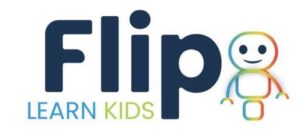The College Board released its Advanced Placement African American Studies course framework Wednesday — earlier than originally planned and on the first day of Black History Month. A review of the final framework shows significant changes from the original proposal.
The final course strips key skills — or what it describes as skills “students should be taught to do while exploring course topics” — included in the original proposal, such as data and visual analysis.
It also no longer includes “Black Identities,” “Art, Literature and Music,” “Black Feminist Movement, Womanism, and Intersectionality,” and “Black Lives Today,” which were all listed under the proposed framework as instructional focuses. The new framework includes “Black Women’s Voices in Society and Leadership.”
It also makes topics like reparations and intersectionality “optional” as “sample project topics” that are “illustrative only,” rather than required as under the original proposal. The final framework also completely strips the framework of Black Queer studies, and includes “gay life and expression in Black communities” as an optional topic.
“These topics are not a required part of the course framework that is formally adopted by states and that defines the exam,” the course says. “This list is a partial one for illustrative purposes and can be refined by states and districts.”
In its summary of changes, College Board said there was “an overall reduction in the breadth of the course.”
However, despite these changes, College Board CEO David Coleman said in a statement that “this course is an unflinching encounter with the facts and evidence of African American history and culture.” He added that “no one is excluded from this course” and that “everybody is seen.”
Many of the topics that have been changed to optional or stripped completely — like queer studies, reparations and intersectionality — had been cited by the Florida Department of Education as concerns that prompted it to reject the course, which it said violated the state’s recent law prohibiting teaching and discussions of “critical race theory.”
Gov. Ron DeSantis’ office said the original course lacked “educational value and historical accuracy,” and Florida Commissioner of Education Manny Diaz Jr. called it “woke indoctrination masquerading as education.”
Public education advocates and educators have raised concerns that Florida’s law and others similar to it actually prohibit key discussions on race and racism.
Recent research by the RAND Corp.suggests about 1 in 4 teachers’ curriculum and instruction have been influenced by these types of laws, with teachers of color among those especially impacted. Ashley Woo, assistant policy researcher at RAND, said teachers expressed feelings of worry, anxiety, nervousness, concern and fear in wake of the laws.
“As a result of these restrictions, educators have had more on their plates at a time when we know that they are already experiencing heightened levels of stress,” she said.
The final framework was released after the proposed course was piloted in 60 schools nationwide beginning fall of 2022. The AP African American studies course is expected to be available to all high schools starting 2024-25.






Leave a Reply